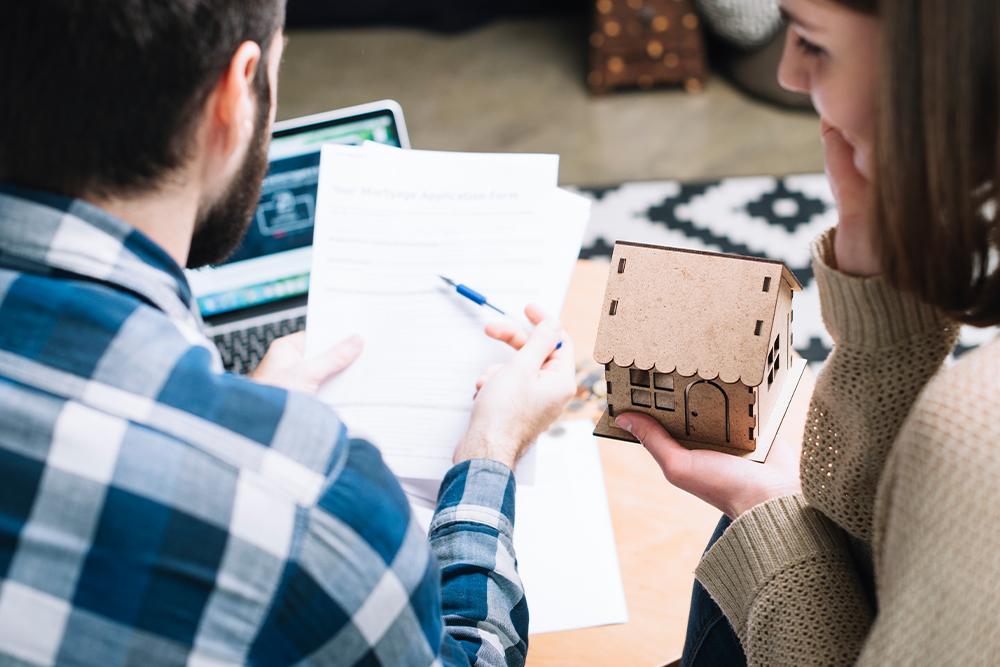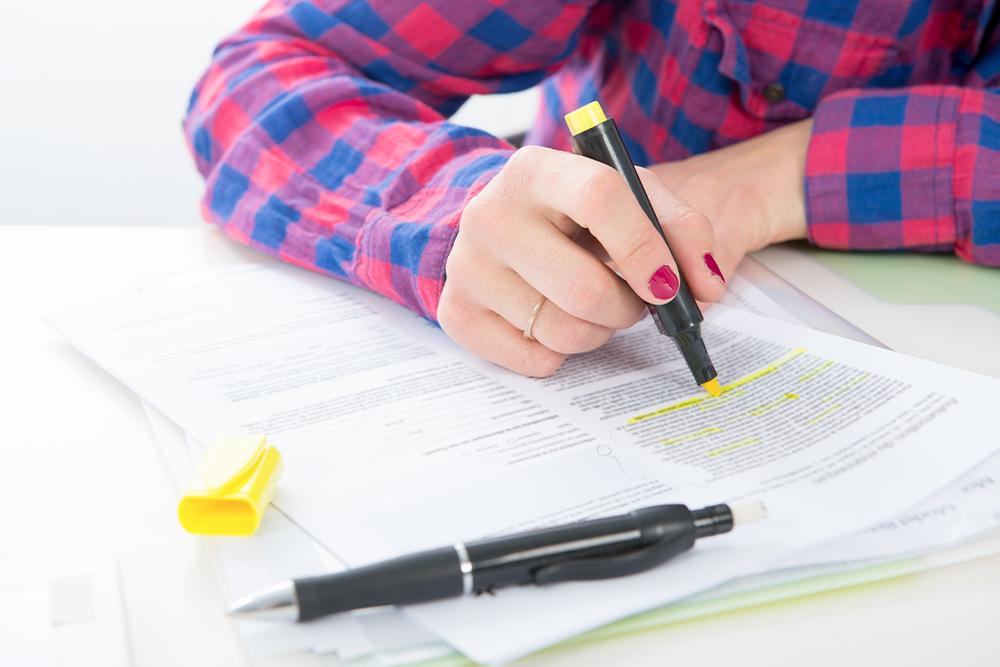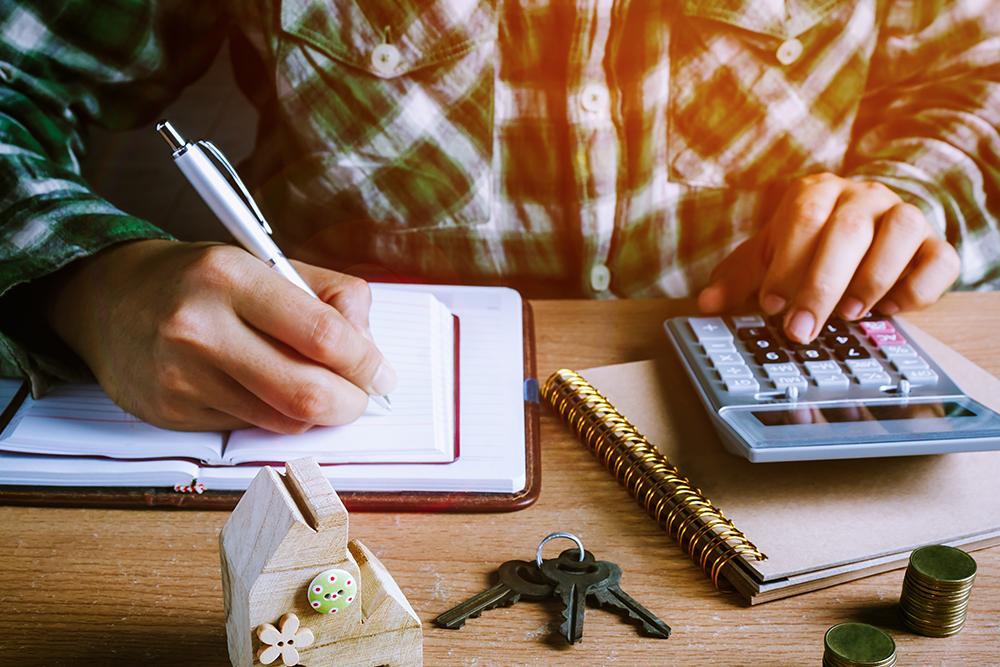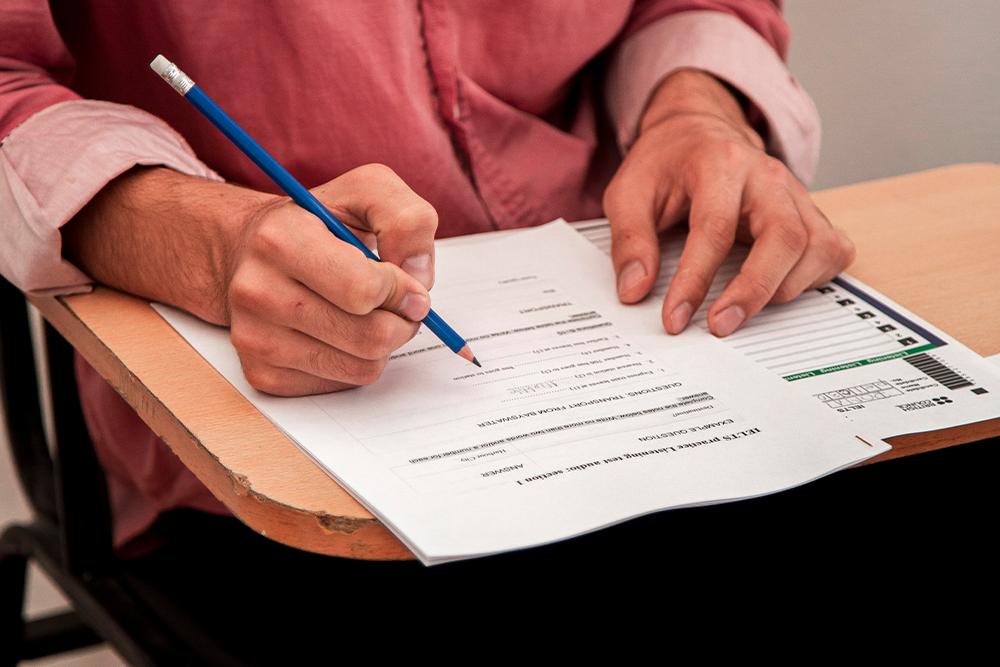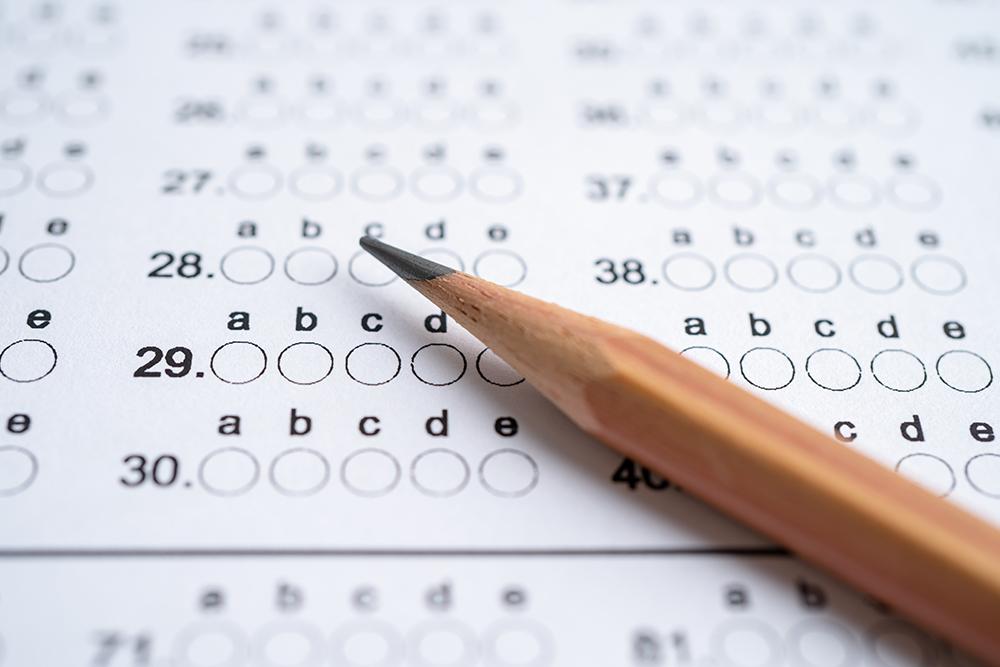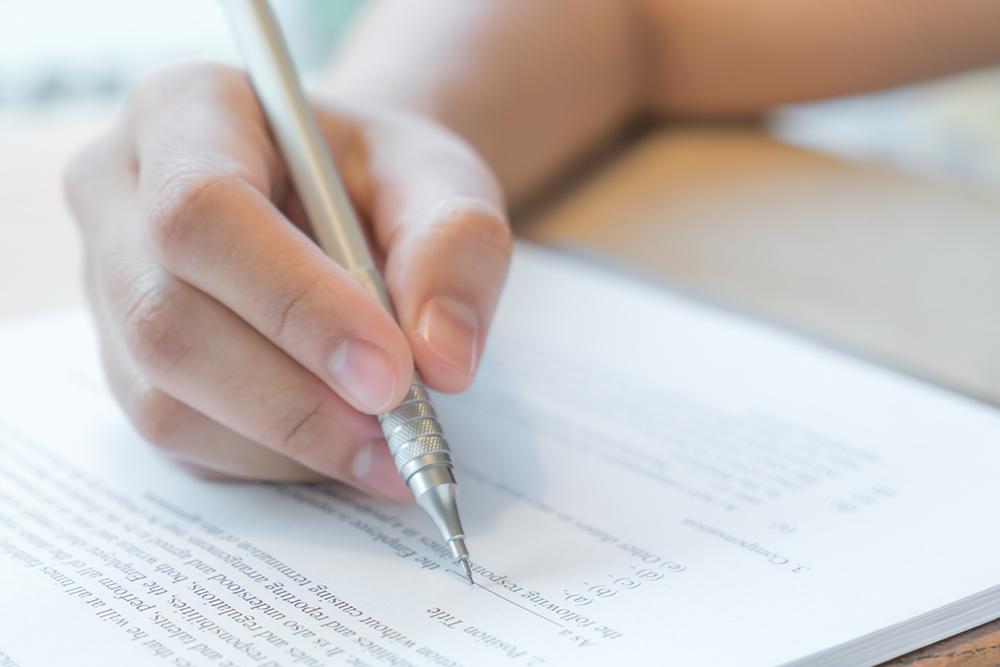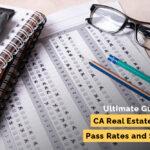The real estate exam in California is a tricky test to take. It’s lengthy, intense, and high-pressure, taken in an environment where you’re stripped of anything that could be used to cheat or hide answers. It’s often quite stressful and uncomfortable, which makes it all the harder to focus on the test.
That said, it’s truly not that difficult if you’ve been studying the material properly. And, since part of the requirements to even take the exam is a proper amount of study, ideally, you should be fine. You might not ace the test, but you should be able to pass.
Some people aren’t great at taking tests. Others find that studied material seems to vanish when they’re in a stressful situation. Whatever the case may be, here are some tips and tricks you can use to have a better shot of passing the real estate exam on your first time through.
Preparing For The California Real Estate License Test
First, let’s talk about preparing for the exam. These tips are all about studying, learning, and absorbing information in a way that works best for you.
1. Find Your Learning Style
One of the most beneficial things you can do is learn what kind of learner you are. For example, some people work best learning base concepts and building up; others are more about rote memorization.
There are a variety of different learning styles and self-assessments you can take to try to determine yours. From there, you can determine what the best method is for you to study and build a study plan that works for you.
2. Understand What’s on the Exam
The California real estate licensing exam has seven sections, each covering a different aspect of real estate practice and theory.
They are:
- The Practice of Real Estate and Disclosures
- Laws of Agency and Fiduciary Duty
- Property Ownership and Land Use Controls and Regulations
- Property Valuation and Financial Analysis
- Contracts
- Financing
- Transfer of Property
There’s a lot about real estate that is important to a career but not important to the exam. If you find yourself studying details that are much too niche, putting time into learning concepts not covered in the above categories, or just generally veering off-topic, it can be worthwhile to dial back and re-focus on what really matters.
3. Focus on Vocab
One of the best things you can do when studying for the real estate exam is to learn your vocabulary. There are dozens of terms specific to real estate, and a lot of the exam is going to be focused on what those terms mean.
When you understand the vocabulary – and this is often a matter of rote memorization since it’s definitions and not theory – you can skim through the exam, pick out questions that ask about specific definitions, and answer them appropriately right away. Plucking the low-hanging fruit – so to speak – can be a great way to get the test off on the right foot.
4. Understand the Mathematical Concepts
The math of real estate is generally pretty simple. You’ll need to know concepts like calculating area and square footage for a parcel, knowing how much an acre is, how to calculate property tax rates, what millages are and how they apply, what the formula is for calculating a commission, and basic interest rate calculations.
In reality, most of this is either easy to reference or done automatically by the software you’ll be using as part of your real estate practice, but even so, it’s generally a good idea to learn the concepts so you know how they apply.
5. Take Practice Tests
One of the best things you can do to establish confidence and identify what you both know and don’t know is to take practice exams. Any good course program (like ours) will include plenty of practice exams, pulled from pools of thousands of possible questions, designed to most accurately mimic the actual exam.
Take practice tests until you’re confident that you can pass them before you schedule your real exam.
6. Know How Many Questions You Can Miss
One of the nice things about exams like this is you have a lot of leeway. The test is 150 questions, all multiple-choice. You need to get at least 70% on the exam to pass, which is 105 of those questions correct. That means you can get 45 questions wrong and still pass.
This is great to know because it helps take some of the pressure off. If you’re scrolling through the exam and you find 15-20 questions you completely blank on and know you don’t know, that’s fine! That’s not even half of your allotment of wrong answers, and you might even get some of them right after all.
7. Practice Good Study Habits
A lot of people don’t quite know how to study properly. In addition to knowing how you learn, as mentioned above, you also need to make sure you aren’t “studying” in a way that you’ll never retain the information.
Take it in shifts, don’t overdo it and burn yourself out, and consider a timer-based moderation practice like the Pomodoro technique to help retain information. The more effectively you study, the more information you’ll retain and the less stressed you’ll be when taking the exam.
Pro Tips for Taking the Test
You’ve taken your classes, you’ve studied your subjects, and you’ve passed practice exams. Now it’s time to sit for the real thing. What can you do to maximize your chances of success?
1. Answer Easy Questions First
One of the nice things about the real estate exam is that you can’t get roadblocked by a question. You can always skip a question and come back to it later. Therefore, the first thing you should do is skim through the whole exam. If you don’t immediately know the answer to a question, skip it and move to the next one.
By the time you’ve gone through the exam completely once, you’ll probably have answered 30-60 questions right away, that you’re confident in the answers to and know you’ve gotten right. Then you can go through again and answer the ones you thought were easy but weren’t 100% sure about, and go through a second pass. By repeating this process, you can narrow things down to just the hardest questions.
2. Skim for Vocabulary Questions
A large portion of the real estate exam actually comes down to knowing your vocabulary. What do words and terms mean, what is the name for certain concepts, and so on.
Often, these questions rely on knowing specific keywords or vocabulary terms and matching them up with definitions properly. Part of your skim through should be identifying the questions that purely come down to knowing your vocab, and answering them properly.
3. Read Each Question in Detail
The exam is tricky because it will try to trip you up sometimes. For example, you might find a question with a couple of different answers that seem plausible. By re-reading the question, you might see that it uses a term like “if” or “all,” which will change the meaning of the question and lead you to a specific answer.
Try not to gloss over a question, and read it carefully; a few stray words can elucidate the cloudier questions and help you pick the right answer.
4. Skip Questions You Know You Can’t Answer
Much like how the first tip above is to answer the easy questions first, never be afraid to completely skip a question you know you don’t know.
Don’t sit for five minutes racking your brain or trying desperately to remember something you just don’t know. All you’ll do is stress yourself out and waste time. Just chalk it up to one of your 45 allowable wrong answers and skip it until the end.
5. Don’t Leave Any Questions Blank
Note that we said “leave it until the end,” not “skip it entirely.” Remember, this exam is multiple-choice, and one of those four answers will be the correct answer. That means if you guess randomly, you have a 25% chance of getting it right. 25% is way better than the 0% you have if you leave it blank, so as a final step before you submit your completed exam, just plug in your best guess for each question you would otherwise completely skip.
Worst case scenario, you get them all wrong, but you still know you had enough other questions right to pass. Best case, you guess correctly, and it adds to the buffer of right answers.
6. Don’t Be Afraid to Second-Guess Yourself
When you read a question, and you think you know the answer, answer it. But, if you read it again when going through the exam and you think you answered it wrong, feel free to change it.
This can be very effective, especially if you’re working with a gut feeling. Maybe you’re wrong, and changing it is a bad move, but numerous studies have shown that when you change your answer, you’re most often doing so because you remembered something (even subconsciously) that reminds you of the right answer.
7. Work Backwards and Eliminate Bad Answers
When you’re down to the questions that you don’t know and have to guess on, you can still improve your chances of getting them right, even on a guess.
Out of the four answers available for each question, usually, at least 1-2 of the answers are clearly incorrect. By eliminating those answers from the running, you improve your chances of a correct guess from 25% to 33% or 50%, which is pretty significant!
8. Ignore Everyone Else
Exams are taken in large rooms with groups of people, and it’s hard not to consider yourself part of the group or in competition with them. The truth is, though, that they don’t matter at all.
If someone gets up early to hand in their test, maybe they aced it, and they’re leaving with their head held high, or maybe they bombed it and are giving up – you have no way of knowing. Truthfully, the best thing you can do is ignore everyone else entirely.
General Resources for Real Estate Exam Success
With everything above, you should have a good grasp on how to succeed on the California real estate licensing exam. Is there anything else worth mentioning? Sure; here are a few parting tips.
1. Be Well Fed, Rested, and Hydrated for the Test
Your brain uses up a lot of energy, so your body needs to have that energy available. If you’re tired, stressed, hungry, or thirsty during the exam, it’s not just a physical distraction – it’s tangibly impacting the ability of your brain to perform.
Drink plenty of water in the hours leading up to the exam, eat a decent meal ahead of time, and get plenty of sleep in the days leading up to the test date. Don’t try to cram the night before, either. A simple review is plenty, but staying up to cram is going to leave you exhausted and clouded when you try to take the test.
2. Remember the Reality of the Situation
One thing you hear a lot if you talk to licensed real estate agents is that the subjects on the test are rarely impactful to their careers. A lot of it, like the math, is done with software and calculators these days.
While you need to know the concepts to pass the exam, it’s more about theory, law, and practice in reality. Don’t stress overly much about minor details that, in reality, are going to be done for you and won’t truly matter.
3. Use Our Pass Coverage Guarantee
The California real estate licensing exam costs $60 each time you want to take it. While that may not seem like a lot, it makes every failure sting that much more.
Our courses, however, are precision-engineered to help you learn everything you need to know to pass on your first try. More importantly, if you don’t pass, we’ll cover your test fees for each repeated test until you do. Who needs the extra stress, anyway? We’ve got your back, so get your real estate licensetoday, and if you have any questions, please feel free to let us know at any time!


